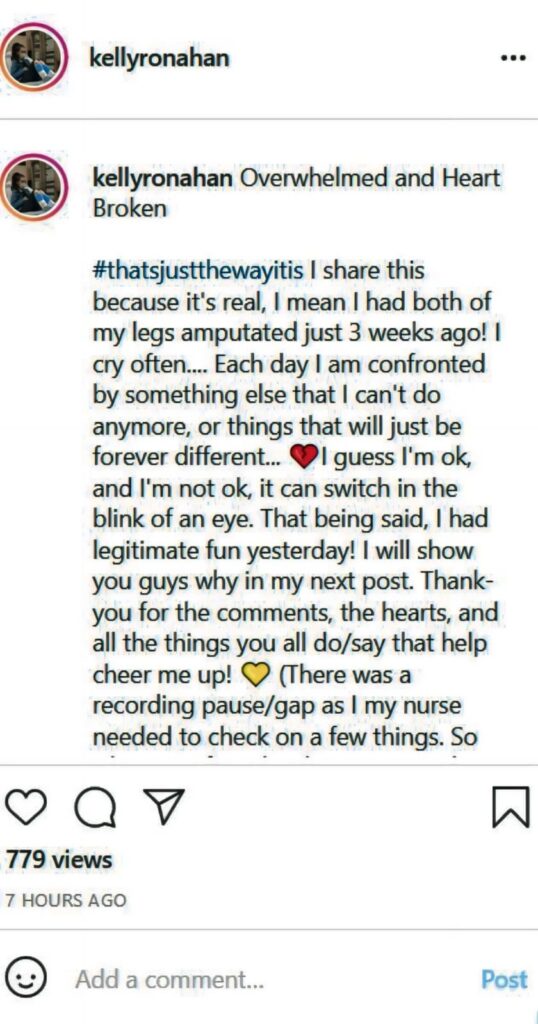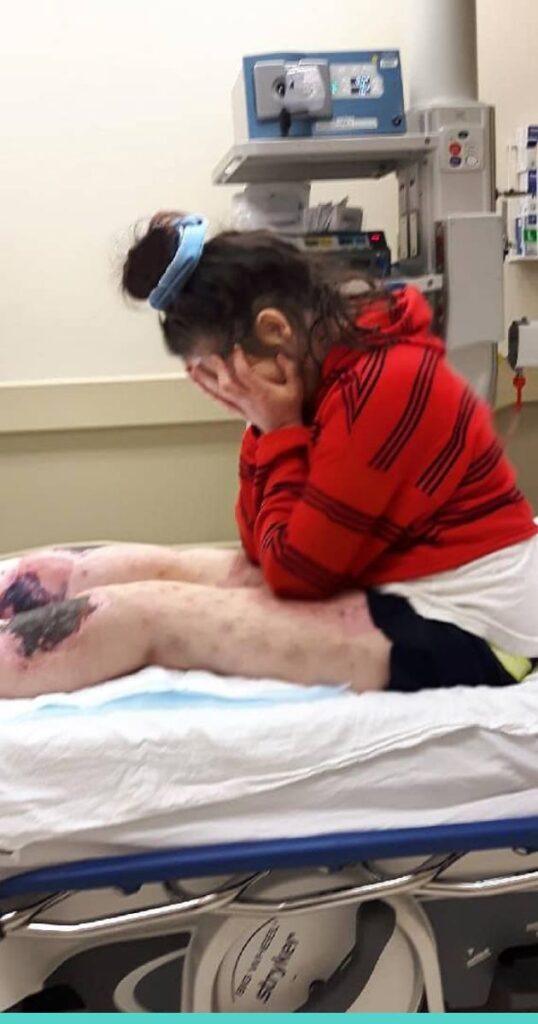Kelly Ronahan’s story has grabbed a lot of attention. People are talking about her on social media. They wonder if she’s really sick or if she’s making it up. Some say she might have Munchausen syndrome. That’s when someone pretends to be ill for attention. It’s a tricky case with no clear answers yet. Doctors, nurses, and online sleuths are trying to figure out the truth. This story makes us think about health, lies, and how we judge others online.
Profile Bio Of Kelly Ronahan
| Category | Details |
| Name | Kelly Ronahan |
| Date of Birth | Born October 26, 1965 |
| Location | Kelowna, British Columbia, Canada |
| Initial Diagnosis | Rare Blood Disorder |
| Public Attention | Began in 2014 |
| Key Symptom | Required Frequent Blood Transfusions |
| Shift in Perception | Around 2016 |
| Suspected Condition | Munchausen Syndrome |
| Major Incident | Severe Unexplained Leg Wounds |
| Controversy | Allegations of Fabricating Illness |
| Social Media Impact | Significant Public Support & Scrutiny |
| Medical Investigation | Inconsistencies in Symptoms |
| Current Status | Ongoing Discussions and Evaluations |
The Rise to Public Attention

Kelly Ronahan first gained public attention in 2014 when she bravely shared her struggles with a rare blood disorder. Her story touched many hearts, detailing her need for frequent blood transfusions to manage the condition. This led to an outpouring of sympathy and community support, especially in Kelowna, British Columbia, where fundraisers and blood drives were organized in her honor.
Initially, Ronahan was seen as a courageous woman facing a severe health crisis. She shared updates on social media about her treatments and the emotional challenges she faced. However, as her story gained more attention, it also faced scrutiny and skepticism due to inconsistencies that emerged over time.
The Shift in Perception
As Kelly Ronahan’s story unfolded, people noticed discrepancies in her accounts. Despite ongoing treatments, her condition didn’t always match what was expected for her illness. Sometimes her symptoms didn’t match her medical records, raising concerns among healthcare providers and those following her story closely.
By 2016, doubts about Ronahan’s illness grew. Doctors questioned the need for frequent blood transfusions and the consistency of her symptoms with her diagnosis. This led to more scrutiny and investigations, uncovering signs of Munchausen Syndrome. This disorder involves faking illness or causing symptoms to get attention and sympathy from medical professionals.
Understanding Munchausen Syndrome
Munchausen syndrome is a strange problem. Some people pretend to be sick when they’re not. They might lie about having pain or other symptoms. Sometimes they even hurt themselves on purpose. These people go to lots of doctors and hospitals. They want attention and care from others. It’s not the same as faking illness to skip work.
People with Munchausen really believe they need medical help. They don’t do it for money or other rewards. It’s a mental health issue, not a physical one. Doctors find it hard to spot. It can be dangerous for the person. They might get unnecessary treatments. Helping these people is tricky. They often don’t admit they have a problem. Doctors and families need to be patient and understanding.
The Allegations Against Ronahan

Kelly Ronahan’s case sparked mixed reactions when allegations of Munchausen Syndrome arose. Some medical professionals and members of the public pointed out inconsistencies in her story and the lack of a clear diagnosis to explain her symptoms and frequent blood transfusions. However, her supporters believed she was suffering from a rare, misunderstood illness and felt the allegations were unfair.
The situation escalated when Ronahan started reporting severe, unexplained wounds on her legs, leading to numerous hospitalizations and surgeries. Experts noted these wounds didn’t match any known medical condition, suggesting they might be self-inflicted, fueling further suspicion.
The Broader Implications
The Kelly Ronahan case sheds light on the difficulties in diagnosing Munchausen Syndrome. It shows how important it is for doctors to be thorough and compassionate. They need to balance skepticism with empathy to avoid missing real medical issues while addressing possible psychological problems.
The case also highlights the role of social media. Online attention can worsen symptoms and behaviors linked to Munchausen Syndrome. For people like Ronahan, social media can be both a source of support and a platform that encourages their illness behaviors. This dual effect complicates their treatment and recovery.
Moving Forward
The Kelly Ronahan case continues to be discussed widely. Allegations of Munchausen Syndrome have complicated her story, highlighting the need for sensitivity. Understanding cases like hers is essential.
Mental health issues, such as Munchausen Syndrome, need a team approach. This involves medical, psychological, and social support to help improve their quality of life. Addressing these conditions requires more than just treating physical symptoms.
It’s important for both the medical community and the public to learn about factitious disorders. Recognizing early signs and providing thorough care can greatly improve outcomes. For Kelly Ronahan, recovery involves healing both physically and emotionally.
Conclusion
The Kelly Ronahan case has sparked widespread discussion and speculation regarding Munchausen Syndrome. Her story, initially praised for bravery in battling a rare blood disorder, later faced scrutiny due to inconsistencies in her medical narrative. Allegations of fabricating illness have stirred debate among medical professionals and the public alike.
This case prompts reflection on how we perceive health issues and interact online. Understanding Munchausen Syndrome is crucial; it involves a complex blend of psychological and medical challenges. Moving forward, it’s essential to approach such cases with empathy and thorough evaluation to ensure proper care and support for all involved.


